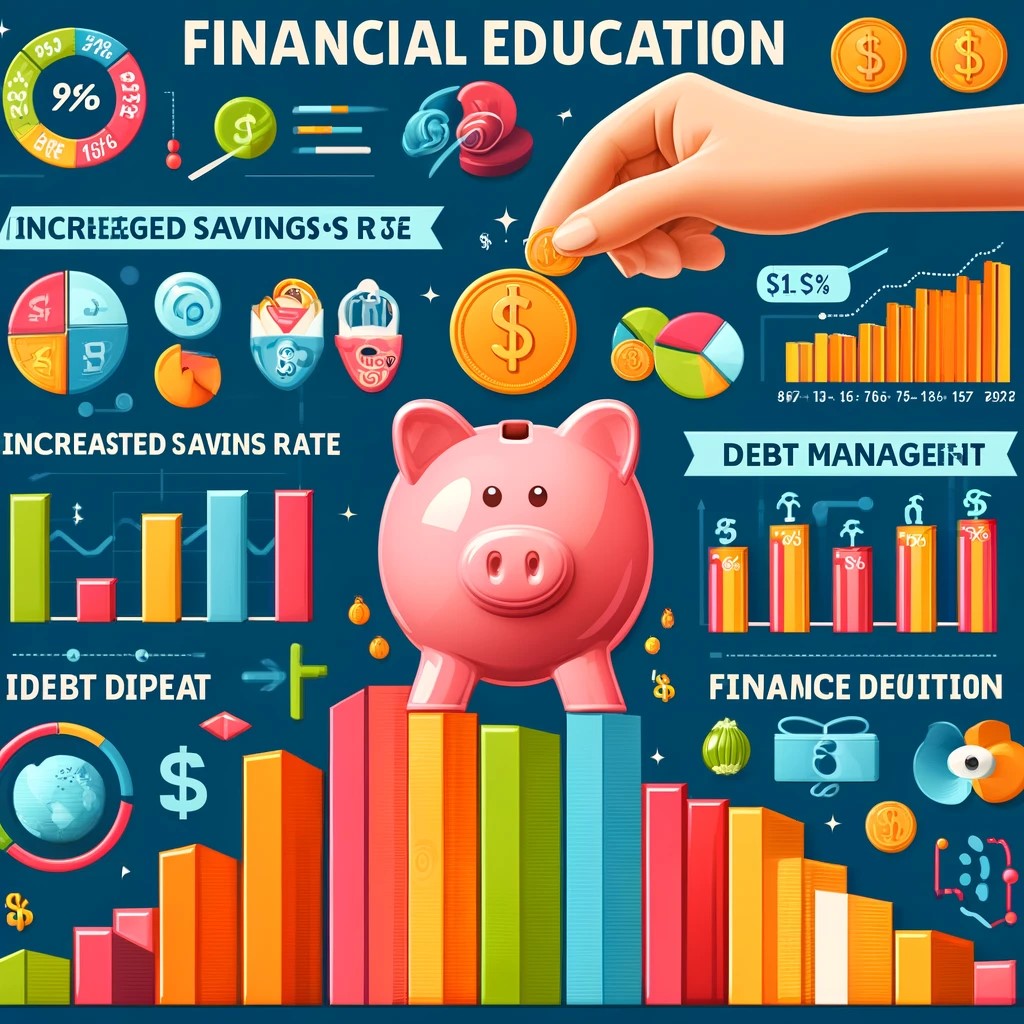Introduction:
In today’s complex economic environment, financial literacy is more than just beneficial—it’s essential. Understanding the fundamentals of finance can profoundly influence personal wealth management and long-term financial security. This article explores the critical role of financial education in managing personal finances, current trends in financial literacy, and its impact on future wealth accumulation.

The Importance of Financial Education:
Financial education equips individuals with the knowledge necessary to make informed and effective decisions with all of their financial resources. It covers a range of topics from basic budgeting skills to sophisticated investment strategies. In essence, financial literacy enhances an individual’s understanding of fiscal matters, which is crucial in navigating the myriad financial challenges of modern life.

Current Trends in Financial Literacy:
Recent years have seen a surge in the recognition of financial literacy’s importance. Schools, non-profit organizations, and even financial institutions have begun to prioritize educational programs that aim to improve financial knowledge at every level of society. However, despite these efforts, studies consistently show that a significant portion of the global population lacks basic financial skills, which can lead to poor financial decisions and inadequate savings for retirement.
Technology also plays a transformative role in financial education. Online platforms, mobile applications, and interactive courses offer new, accessible ways for people to learn about finance at their convenience. These tools not only provide foundational knowledge but also offer insights into complex financial products and markets.
The Impact of Financial Literacy on Wealth Management:
Enhanced Saving Behaviors: Financially educated individuals are more likely to save and manage their money efficiently. They understand the importance of emergency funds, retirement accounts, and the benefits of compound interest.
Effective Debt Management: Understanding the nuances of credit, loans, and interest rates helps individuals avoid excessive debts and manage necessary debts more wisely.
Investment Acumen: With solid financial knowledge, individuals can identify suitable investment opportunities, understand the risks associated with different types of investments, and diversify their portfolios to optimize returns.

Future trends may include:
Integration in Formal Education: There is a growing advocacy for integrating financial education into school curriculums at earlier stages to equip young people with essential financial skills before they enter the workforce.
Customized Financial Education: Advances in technology may allow for more personalized financial education experiences, tailored to individual learning styles and specific financial goals.
Increased Regulatory Focus: Governments might enhance regulations to ensure financial institutions provide clients with clear, comprehensive information about products and services to foster better financial understanding and decision-making.
Conclusion:
The role of financial education in personal wealth management cannot be overstated. It is the bedrock upon which individuals can build a secure financial future. As we advance, the focus on financial literacy will likely grow, driving innovations in education and making financial understanding accessible to all. By investing in financial education today, we are paving the way for a financially literate, and thus more economically secure, tomorrow.





